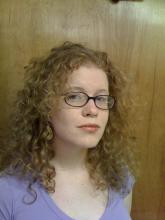As an acquisitions editor at Teachers College Press, Columbia University (www.tcpress.com), I balance on the tensions between scholarly and professional, advocacy and art. Schooling and what we publish about it is deeply political. Education is an applied science; its social experiments and passionate reforms are tested on our next generation. As research informs policy, it changes children’s lives.
How do I use my English major? To state the obvious: if you want to publish books, it helps if you like to read. Though, there’s a critical distinction between reading as a reader and as an editor. In English courses, we learn to identify themes, to appreciate literature—and to critique it. But we don’t often ask of a classic, “Should this book be published?” It was in my creative writing electives that I practiced the craft, and the confidence, of an editorial approach. Workshops taught me basic line-editing for tone, style, pacing, and keen sensitivity to writers’ egos. My role is to help scholars understand and address criticism, be it an incisive (or snarky) peer reviewer or my own bright ideas about how they could best shape their arguments. What I’ve learned on the job was also taught at UW: how to be a collaborative editor.
My professional career actually started while I was still attending college. In my senior year, I interned at the Wales Literary Agency. Interns read the “slush pile,” a stack of unsolicited submissions, searching for the unexpected perfect pitch. Through hours of slushing through proposals, I began to develop the instincts that editors refine over a lifetime. It’s one of the hardest things I’ve learned: to say no to so many struggling writers, and remain ready to say yes to the right book.
It’s been ten years since I graduated. I’ve worked in publishing through radical shifts in the way books are read (increasingly on electronic platforms), sold (online as often as in bookstores), and produced (edited in software rather than with a red pencil). The value of an English degree is gaining the habits of mind to read into the future.
